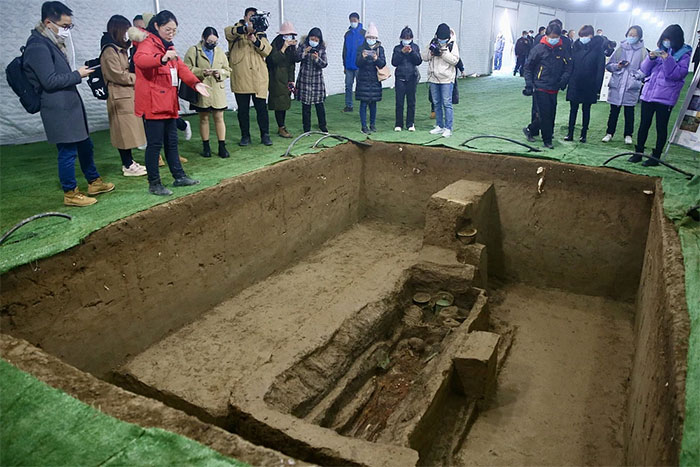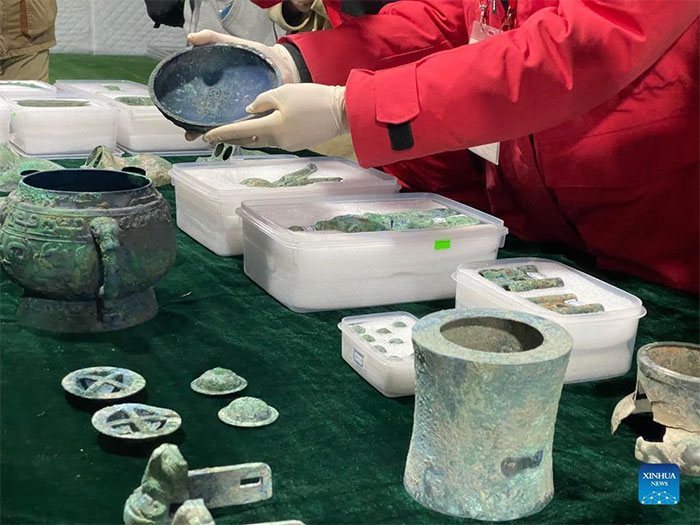According to Chinese archaeologists, over 100 artifacts discovered at a site in Beijing may shed light on the mysteries of the ancient Yan kingdom.
Specifically, the excavation took place at the Liulihe archaeological site in Fangshan District, located in the southwest of Beijing, which has been underway since 2019. Experts from eight organizations, including the Chinese Academy of Social Sciences and Peking University, participated in the excavation.
Liulihe is believed to have been the capital of the Yan kingdom during the Western Zhou period (1046 BC – 771 BC). The site features rammed earth walls, human remains, and burial areas.
With over 3,000 years of history, Liulihe has become a place to search for the earliest origins of urban civilization in Beijing.

An ancient tomb found at the Liulihe site.
From October to December 2021, five ancient tombs, three residential areas, a moat, and over 100 artifacts including bronze items, lacquerware, ceramics, shell, ivory objects, and silk were excavated at this site.
Notably, the discovery of a bronze wine vessel in one of the tombs has led archaeologists to believe that the inscriptions on this artifact provide evidence of Beijing’s construction history spanning more than 3,000 years.

Archaeologists discovered over 100 artifacts at this site.
According to the Beijing Cultural Heritage Bureau, the content on the bronze vessel differs from the inscriptions on artifacts excavated since the 1980s. However, these contents complement each other, and these artifacts are valuable for researching the history of the Yan kingdom.
Guo Jingning, an official from the Beijing Cultural Heritage Bureau, stated that previous excavation efforts at Liulihe were halted four decades ago due to rising groundwater levels.
According to Chen Mingjie, Director of the Beijing Cultural Heritage Bureau, the latest excavation provides crucial information for conducting research on rituals, feudal systems, burial customs, and urban planning during the Western Zhou dynasty.


















































